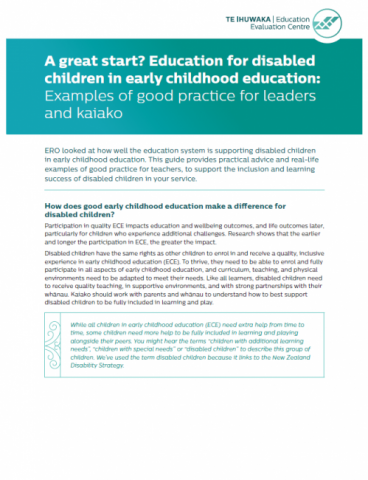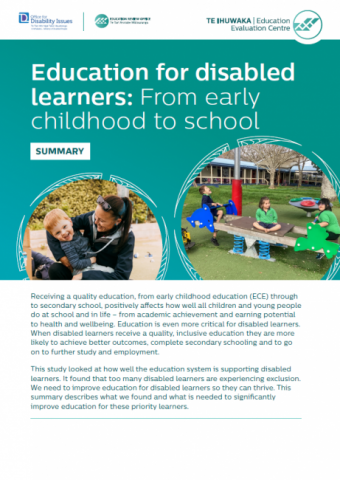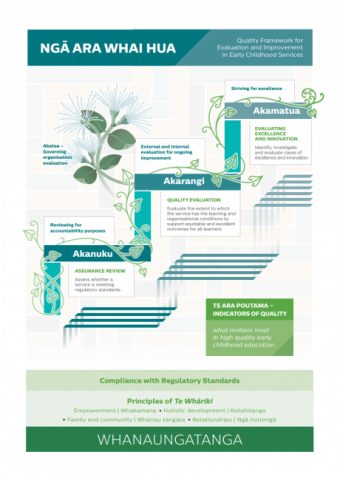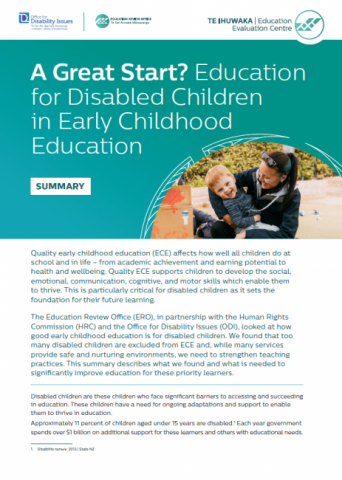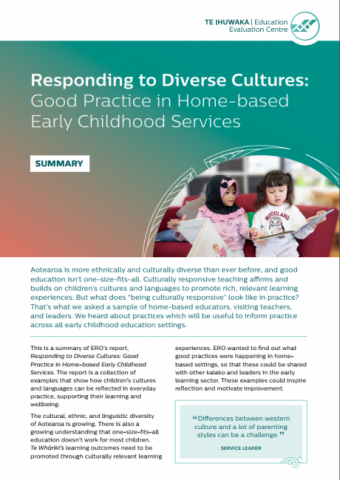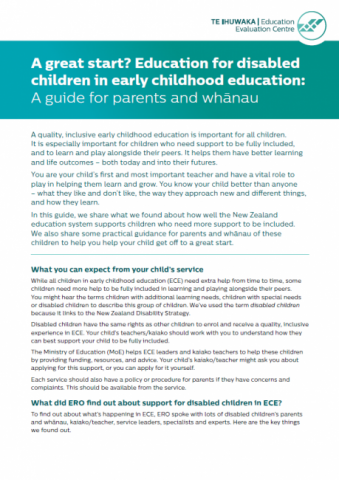Literacy in Early Childhood Services: Teaching and Learning
Published: 31 Mar 2011
ERO evaluated literacy teaching and learning in early childhood services in Term 4, 2009 and Term 1, 2010.
- Audience:
- Early learning
- Education
- Content type:
- Research
- Topics:
- Literacy
- Early Childhood Education (ECE)

